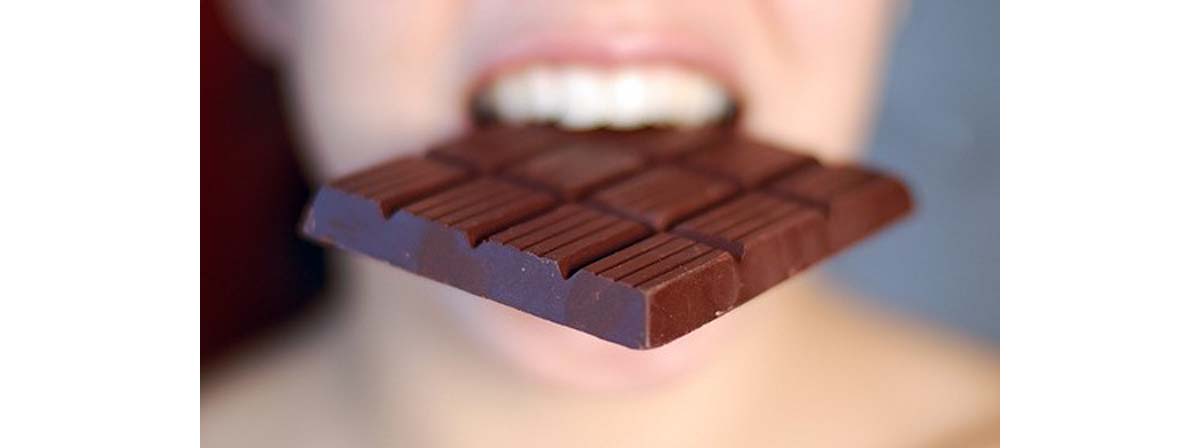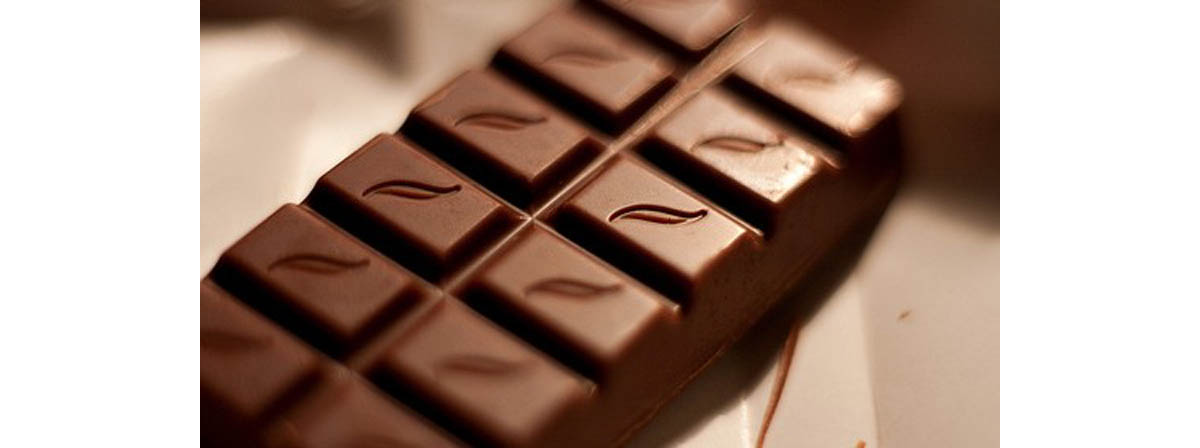What is it about chocolate that makes us like to eat it so very much? Is it the sensual taste? Or that silky texture as it melts in the mouth at just the right temperature? Whatever the secret, we nearly all love it! Apparently, according to research statistics, Ireland has been the greatest consumer of chocolate. Each person in Ireland ate nearly 12 kilos in 2007, while Americans consumed well over 5 kilos per person — still much less.

We can ask this question now because of the increased availability of darker chocolate brands, each of which seems to be marketed as a healthier choice. In fact, the higher the percentage of cocoa solids, the better. Anything over 85 percent cocoa solids is thought to be the best in terms of health benefits.
Cocoa for health?
In fact, cocoa was used as a traditional herbal remedy by the Mayan people around 1000 BC, who valued it so highly that they used the cocoa bean as a currency. They were certainly a prized possession and were used to make into a beverage which was drunk on special occasions by royalty in cups made from gold. But enough history — today, we gobble the stuff up without ever giving it a second thought.
Scientists from Harvard University have conducted some extensive research into the health and medicinal properties of cocoa. Dr Eric Ding, PhD, combined the results from twenty one studies which were carried out to determine the ways in which chocolate consumption could impact human health. The results surprised them. Chocolate consumption was linked to decreased blood pressure, raised mood and changes in cholesterol levels.
Heart Disease
Cocoa and chocolate come from the fruit of the Theobroma cacao tree, which grows straight out of the trunks of the tree. Roberto Corti and his team of scientists in Switzerland have found some amazing health benefits from eating chocolate. Yes, really!
It seems they started this research because all the indigenous peoples who have traditionally eaten chocolate have very good health. The Mayans who drank it and Kuna Indians of Panama who eat huge amounts of chocolate every day have no cardiovascular problems, no kidney function problems, little or no cardiovascular disease and much lower blood pressure. This got the scientists thinking that maybe it was not just the relaxed, sun-soaked lifestyle of these peoples. Maybe chocolate is not so bad for you after all.
Their research proved to be correct. A huge longitudinal study of nearly 35,000 women followed for 16 years, found that certain chemicals can protect the body against heart disease. Many of these chemicals are found in the cocoa bean. Flavinoids, a group of polyphenols help to increase the antioxidant levels in the blood and can be measured up to 8 hours after the cocoa bean is eaten. This is the same group of chemicals found in red wine, grape juice, some berries and certain teas — other great examples of tasty and addictive foods!
Researchers are still not completely sure why or how this works, but eating the cocoa bean (including chocolate) has been found to reduce blood pressure by increasing the flexibility of the blood vessels and by stopping blood clots from forming.
Feeling Mellow
Cocoa contains chemicals which directly increase the levels of serotonin and dopamine in the brain. These notorious feel-good chemicals give you a natural pick-me-up. Is it surprising that we automatically reach for a bar of chocolate to lift our mood? It is not just a great taste in your mouth, but when the signal hits your brain, you feel great (and you keep wanting more).
Chocolate also contains both caffeine and theobromine – the two stimulators found in coffee and tea – but in much smaller concentrations.
It sounds too simple doesn’t it? But the reality is that chocolate contains a chemical cocktail of mood lifters which work together to energize and relax you. Not only are serotonin levels raised when you eat chocolate, but the brain also releases other endorphins which make you literally feel happy. It is not really surprising, then, that King Montezuma of the Aztecs would drink a large dose before entering his harem!
But Chocolate Makes Me Fat
Yes it does.
The commercially available chocolate that lines the candy aisle of your grocery store today is rich in milk and sugar, along with plenty of other fattening compounds. In addition to which, the processing treatments which turn the flavinoid-rich cacao beans into chocolate decrease some of those great antioxidants.

The chocolate that we eat gets processed a great deal before it reaches us in those cute little packets. The beans are fermented and roasted and ground down to a powder. Sugars and fats and milk are all added before the chocolate finally hits our mouths. These, in effect, largely minimize the healthful properties.
In order to benefit from these amazing effects, the chocolate which is eaten must be dark. The darker it is, the better it is for you. Dark chocolate, even up to 90%, is now available to purchase from many retail outlets.
So the secret is to eat as dark a chocolate as you can, in the purest form. But even so, it is quite a calorie dense food. Pure dark chocolate can contain as many calories as milk or white. More than one or two squares should not be consumed on a daily basis, otherwise the waistline will start to groan.
So what is the real deal?
Researchers have found health benefits when pure cocoa was taken as a drink. It is certainly rich in antioxidants which mop up free radicals from the blood stream and may have an effect on lowering blood pressure. It may even be beneficial against heart disease, cardiovascular problems and strokes, but much more research needs to be conducted on larger numbers of people. There are even some reports of a benefit against cancer, although these have yet to be confirmed.
While chocolate has been shown to contain naturally occurring fats, these are stearic acid and oleic acid, which do not have any effect on cholesterol levels in the blood stream.
Also, the quality of chocolate varies a great deal. Cheaper chocolate can be up to 50 percent sugar. Or it can be bulked out with the dreaded corn syrup and bad fats. In general, the better quality the chocolate, even though it may have the same number of calories as the cheaper kind, will benefit you more. So try to buy the best quality from reputable companies if you love your chocolate.
Remember…
Stick to a healthy balanced diet. Try to get healthy flavinoids and polyphenols from natural plant sources such as berries and grapes. Also, cut down on saturated, ‘bad’ fats.
Factor in a regular exercise routine to keep all the body parts working as well as they should.
As long all these things are maintained then the good news is that adding a square or two of delicious melt-in-the-mouth dark chocolate will not hurt. You can keep giving chocolate hearts to your true love on Valentine’s day and what is more, now you can tell them that it might just be good for them.
- Mauro Serafini, Rossana Bugianesi, Giuseppe Maiani, Silvia Valtuena, Simone De Santis & Alan Crozier. Plasma antioxidants from chocolate, Nature 424, 1013 (28 August 2003) | doi:10.1038/4241013a Photo courtesy of anjuli_ayer by Flickr : www.flickr.com/photos/anjuli_ayer/2949375321/
- Photo courtesy of Magic Madzik by Flickr : www.flickr.com/photos/cefeida/4376382115/

